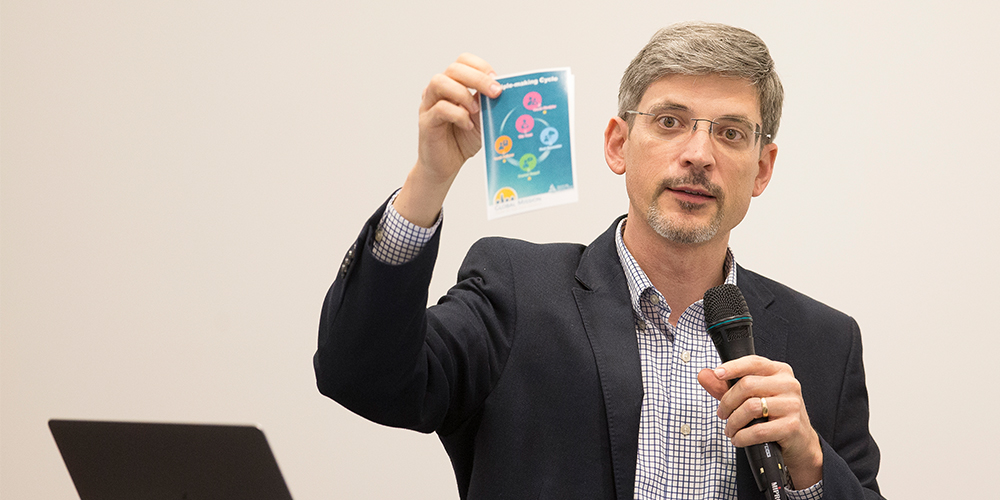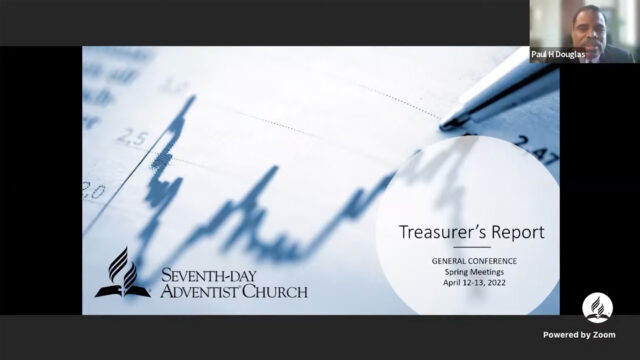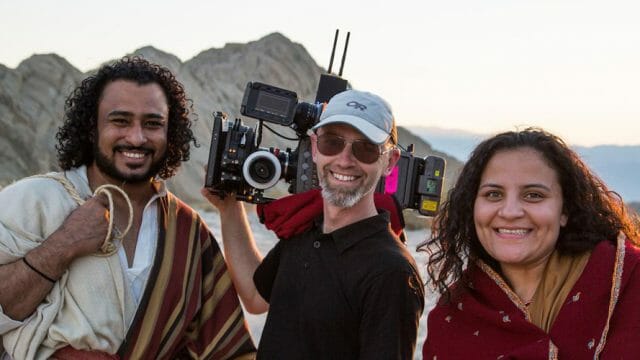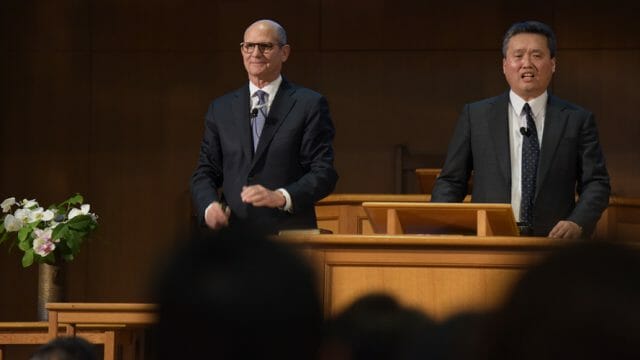It’s not a matter of translation but of relating to other people’s experience, experts say.

The young Seventh-day Adventist missionary was teaching English as a second language and making connections for Christ in a local community in an Asian country. One day, one of his students, a Buddhist monk, said he wanted to talk to him.
“Tell me what Christmas is all about,” the Buddhist monk said to him.
Thrilled at the opportunity of witnessing about his Christian faith, the missionary thought that if he wanted the Buddhist monk to understand the story of Jesus, he would need to start from the beginning.
“I shared with him about Creation and the Fall,” the missionary recalled. “I told him about the promise of a Savior and how He came to this earth as God incarnate. I said that He lived among us, died, rose again, and went back to heaven, and I mentioned that soon He would come back to take us to live with Him.”
As the missionary was talking, he noted that the Buddhist monk began to giggle, as if embarrassed. The missionary ended his informal presentation, asking himself why on earth the wonderful story of Jesus could make someone giggle and feel embarrassed.
Almost two decades later, Greg Whitsett, who was that young missionary, said he understands better what happened that day with the Buddhist monk. Together with his wife, Amy, the Whitsetts run the Adventist Church’s Center for East Asian Religions. On January 2, 2020, they led one of the breakout sessions during the Generation. Youth. Christ. (GYC) annual convention in Louisville, Kentucky, United States.
“We want to share what we learned, so others avoid making the mistakes that we made,” Greg said candidly. “In cross-cultural mission, a good translation is often not enough.”
Understanding Their Mindset
During their January 2 presentation, the Whitsetts explained why being enthusiastic and bold about sharing the story of Jesus is often not successful unless you understand the experience of other people groups.
Greg now accepts that the Buddhist monk who asked him about Christmas started giggling and felt embarrassed because he had no idea what Whitsett was talking about. During their years as missionaries in Asia, the Whitsetts have come to understand the difference between biblical cosmology and Buddhist cosmology.
During his presentation, Greg explained that for Buddhists, there are 31 different planes of existence. They go in ascending order from hot and cold hells (that nevertheless differ from the Christian hell) to the human realm, to deva planes (which include the world of the senses), to the world of form and finally the formless world.
“Against that background, sharing simply about heaven and earth does not make sense to many Buddhists,” Greg said. “On top of that, in Buddhist cosmology, the notion of ‘heaven,’ or the highest plane within the sensual world, is Mara — the personification of delusion and desire, which are evil,” he explained. “So they can’t understand how heaven could be possibly a goal, a better place we are longing to go to.”
How to Connect
Despite the philosophical chasm between Christianity and Buddhism, the Whitsetts reminded their audience that it is our mission to share the gospel with all people groups. But it is something that can be achieved only when we find ways of relating to other people through a common area of experience.
“In the case of Buddhism, progress [in mission] comes with understanding the Buddhist mindset,” they explained. “It is a task we must embark on, as one in fourteen persons around the world is a Buddhist, and Buddhism is the fourth largest religion in the world.”
Some keys the Whitsetts shared to connect with Buddhist neighbors in your hometown or abroad include investing in establishing genuine friendships and sharing your own experience with Jesus.
“Buddhists use experience to know truth,” the Whitsetts explained. “And you can tell them about your experience and ask God to reveal His love.”
Greg and Amy also suggested that good results can be achieved when you focus on the person of Jesus.
“Introduce to them the historical Jesus, who performed miracles; who taught the human heart was incurably controlled by lust, hatred, and ignorance; and who offers to heal the heart,” they said.
Above all, the Whitsetts said, Buddhists value self-discipline.
“We should model and coach them into a new life of victory made possible only by Jesus,” Greg and Amy explained.
Beyond Translation
Greg mentioned that in the past few years, several departments and ministries across the Adventist Church have become more intentional about translating the writings of church co-founder Ellen G. White and other resources to as many languages as possible.
“But translation is not enough,” Greg emphasized. “You can come up with a fairly good translation and still not be able to connect with people who have a different mindset,” he explained.
“It’s not a matter of translation; it’s a matter of retelling, or being able to relate to the experience, the values, and the worldview of other people,” he said.








